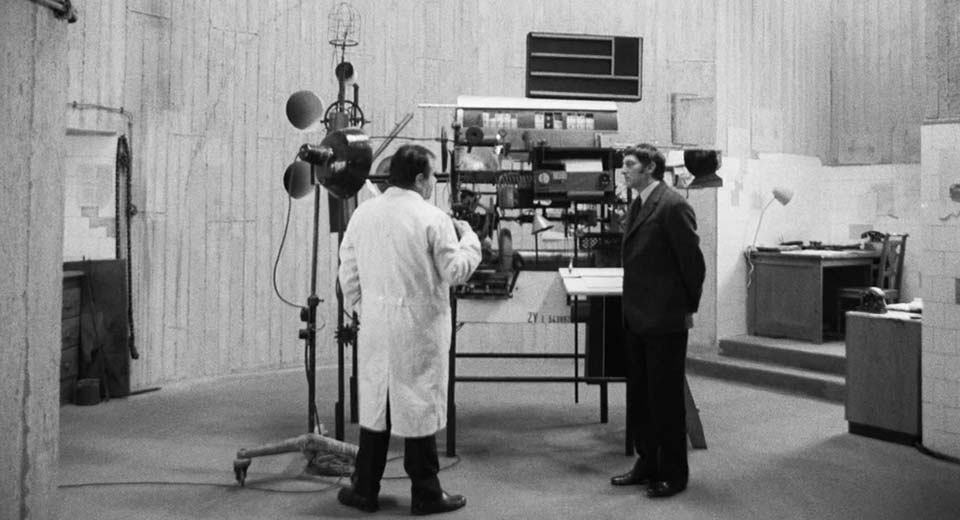
Pavel Juráček, writer of bleak survivalist sci-fi Late August At The Hotel Ozone and contributor to the anarchic anti-morality tale Daisies, directed only five films. The last of them, Case for a Rookie Hangman, is a sharply-observed masterpiece of humanity at its most ludicrous (and therefore most human). Hangman screened for barely two months in 1969 before being shut down by the hardened Communist regime after the Soviet invasion. Refusing to collaborate, Juráček was banished first from Barrandov Studios in 1971, then from Czechoslovakia in 1977, his career effectively ended. He died in 1989, only a few months before the regime crumbled.
The film bookends Museum of the Moving Image’s Panorama Europe, a self-described “eclectic overview” of current European film. Except for that particular style of square, low-heeled pump impossible to find outside 60s cinema, Case for a Rookie Hangman is modern as its contemporaries in conveying Europe’s current willful insularity and reactionaryism. Based on Gulliver’s Travels’ third book, the film was a clear influence on The Hourglass Sanatorium, though Hangman is completely free of the latter’s soft nostalgia and nixes hazy color for crisp, rich black and white, shot by Jan Kališ, who previously worked on IKARIE XB-1, co-written by Juráček.
Stymied by a dot of a sign on an otherwise open stretch, the film opens with hero Gulliver taking a dangerously winding detour. He loses his car but gains a ticking pocket watch, plucked from the body of the well-dressed hare he hit. From there he walks into a psychic trap, a flood of free-associating memories and emotions whirling around his drowned first love, Margaret.
He’s entered Balnibari, where the entire country’s poisoned by the same longing for an ideal; for all Gulliver’s awareness, he doesn’t see how he mirrors the natives literally looking up to their floating-island capital of Laputa, awaiting news of their glorious king (a Solondz-ian caricature). The plot is divided into dryly absurdist chapters; arbitrary categorizations abound and are even taught as a class. The highlight of a scientific tour is a hand-cranked thinking machine whose inventor is incensed at government suggestion he switch to horsepower. A housewife’s complaint at having to judge a death sentence is interrupted by the mother of her eight year-old benchfellow bringing his forgotten jacket. Even the subversives only want to know if Gulliver really met their king in person, pushing for details.
Late in the film the Laputian princess, one of Margaret’s many doppelgangers, asks whether Margaret isn’t only dead in Gulliver’s mind, actually living happily elsewhere. Yet Gulliver persists in yearning despite constantly bedding and resenting her dark-haired double, oblivious to their intertangled identities; after all, dead is a lot easier to handle than acknowledging a perfection never really existed. The rebels who embraced him turn too when Gulliver tells the truth about their hollow heaven. People need their illusions and despise you for exposing them, something Juráček understood too well.


